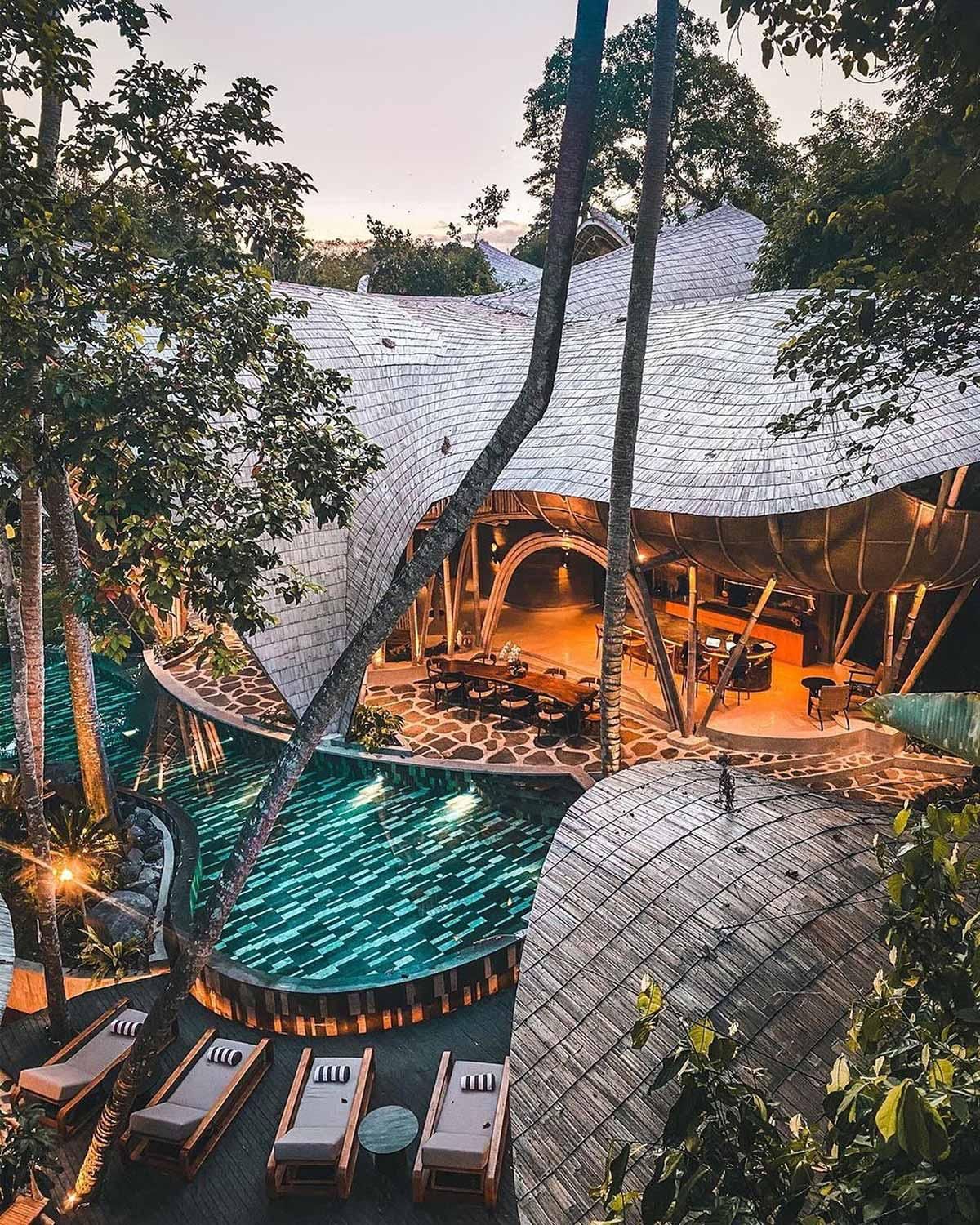Wellness Travel Trends in 2026: Biophilic Experiences and Beyond
In 2025, the future of wellness travel is about more than luxury or escapism. It’s about hospitality leading the charge in helping people build and sustain healthy habits. Top-tier tourism now centers on combining nature‑integrated design, mindful movement, nourishing food, and eco‑sensibility to foster long‑term well‑being. Biophilic gyms, regenerative lodging, natural nutrition, and outdoor immersion are now core strategies for destinations committed to real health transformation.
Wellness Travel Market on the Rise
The global wellness tourism market is booming. It’s projected to grow from $895.09 billion in 2024 to $974.59 billion in 2025, reflecting a CAGR of 8.9% (source: thebusinessresearchcompany.com). This rapid expansion underscores a growing demand for wellness experiences that support healthy, sustainable habits.
1. Regenerative Hotels & Resorts: Designed for Habit-Forming Wellness
Leading resorts are going beyond restorative design — they’re actively regenerating well-being. Spaces filled with greenery, daylight, and organic materials become intentional tools that encourage daily wellness habits, from stress‑reducing morning routines to mindful unwinding at day’s end.
2. Nature-Inspired Gyms That Support Sustainable Fitness
Biophilic gyms are reshaping the fitness travel experience. With natural light, verdant elements, and textured materials, they make exercise feel energizing, calming, and sustainable. Travelers return home with not just memorable workouts, but lasting exercise habits rooted in mindfulness and joy.
3. Farm-to-Table & Natural Food for Lifelong Nutrition
Nutrition is a daily habit—and wellness travel now prioritizes it. Destinations offering local, seasonal, and minimally‑processed meals help visitors adopt nourishing patterns that continue beyond their stay. Cooking workshops, foraging walks, and chef-led nutrition talks reinforce a lifelong connection to healthy eating.
4. Outdoor Immersion as Habit-Building Ritual
Wellness travel is increasingly grounded in nature‑rooted daily rituals. Guests practice forest bathing, open‑air yoga, or guided hiking, reconnecting them with rhythms that ease stress and elevate mood. These immersive habits are more than experiences - they’re habits travelers carry into their everyday lives.
5. Sustainability as the Foundation of Healthy Lifestyles
Sustainably minded wellness travel encourages habits that benefit both people and planet. Eco‑friendly practices—plastic‑free dining, renewable energy, regenerative landscapes - reinforce values that inspire guests to adopt more conscious lifestyles, long after the trip ends.
Conclusion
Wellness travel in 2025 is about more than a one-time escape—it’s about cultivating lifelong health habits within tourism. From
regenerative architecture to
nutritious food, biophilic gyms, and immersive nature, forward-looking hospitality isn’t just serving experiences—it’s serving sustainable well-being.












